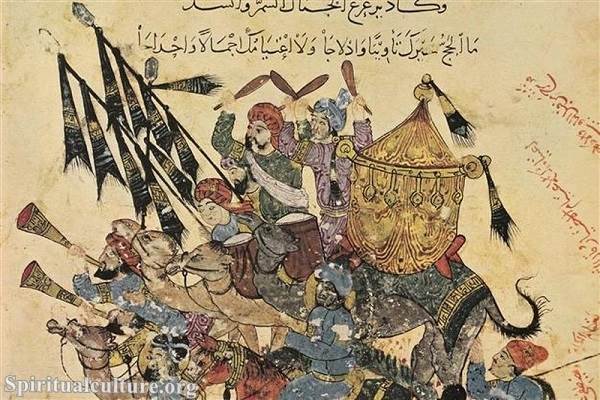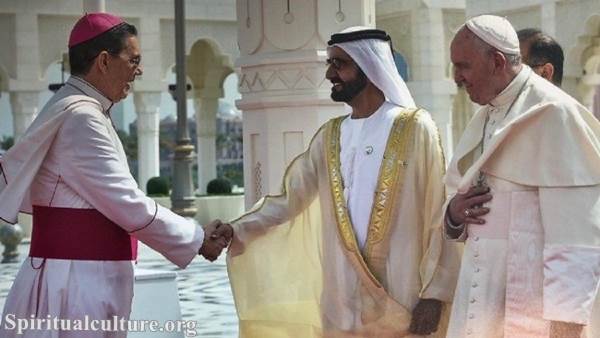Islam also places a strong emphasis on the importance of justice, compassion, and charity toward others.
The Five Pillars of Islam, which include prayer, charity, fasting, pilgrimage, and the declaration of faith, are also considered central to the faith.

In addition, the Qur’an, the holy book of Islam, is considered the Word of God and is highly revered by Muslims.
Other important values in Islam include:
- One God: Muslims believe in one God, who is all-powerful, all-knowing, and merciful. This belief is central to Islam and is reflected in the declaration of faith (shahada), which states that there is no god but God and that Muhammad is the messenger of God.
- Qur’an: The Qur’an is the holy book of Islam and is considered to be the Word of God as revealed to the Prophet Muhammad. Muslims believe the Qur’an provides guidance and instruction for all aspects of their lives.
- Five Pillars: The Five Pillars of Islam are the foundation of the faith and are considered the most important practice in Islam. These pillars are shahada (declaration of faith), salat (daily prayers), zakat (charity), sawm (fasting during the month of Ramadan), and hajj (pilgrimage to Mecca).
- Charity: Islam teaches Muslims to be charitable and help those in need. This can take the form of financial assistance, but it can also include helping others in practical ways, such as offering time and services to those who need it.
- Justice: Islam emphasizes the importance of justice and fairness in all aspects of life. Muslims are taught to be fair and just in their dealings with others and to seek justice for those who have been wronged.
- Compassion: Islam teaches Muslims to be compassionate towards others and show kindness and mercy to those in need. This includes caring for the poor, the sick, and the orphaned.
- Forgiveness: Islam teaches that forgiveness is a virtue and that Muslims should strive to forgive others for their mistakes. This includes seeking forgiveness from God and others for one’s own mistakes.
- Self-control: Islam promotes self-control and moderation in everything, including thoughts, words, and actions. Muslims are taught to avoid excess and to strive for balance in their lives.
- Family values: Islam places a strong emphasis on the importance of the family and the role it plays in the spiritual and social development of its members. The family is considered the basic unit of society in Islam, and Muslims are taught to respect and honor their parents and relatives.
- Perseverance: Islam encourages Muslims to persevere in facing challenges and to have patience and perseverance in their pursuit of good. Muslims are taught to be resilient and to keep striving for what is right, even when faced with difficulties or setbacks.
- Responsibility and accountability: Muslims are held responsible for their actions and are expected to be accountable for them. This includes being accountable to God for one’s actions, as well as being responsible for the well-being of others, such as one’s family and community.
- Respect for all human beings: Islam teaches that all human beings are equal in the eyes of God and should be treated with respect and kindness. This includes showing respect for people of all faiths and backgrounds, as well as treating all people with dignity and compassion.
- Honesty and integrity: Muslims are expected to be honest and truthful in their words and actions. This includes being truthful in one’s dealings with others, as well as being honest with oneself.
- Respect for the environment: Islam teaches Muslims to be good stewards of the earth and its resources. This includes taking care of the natural environment and using resources responsibly.
- Respect for the rights of others: Islam emphasizes the importance of respecting the rights of others, including the right to privacy, the right to one’s own beliefs, and the right to be treated with fairness and justice.
- Community involvement: Islam promotes a sense of community and encourages Muslims to be actively involved in their local communities. This can include volunteering, participating in community service projects, and supporting local organizations and causes.
- Education: Islam places a strong emphasis on education and the pursuit of knowledge. Muslims are encouraged to seek knowledge and to learn and grow throughout their lives continually.
- Respect for authority: Islam teaches that Muslims should respect and obey those in positions of authority, as long as their orders are not in conflict with the teachings of Islam.
- Non-violent conflict resolution: Islam promotes using non-violent means to resolve conflicts and disputes. Muslims are taught to use dialogue and negotiation to resolve differences and avoid resorting to violence or aggression.
These values and principles are central to Islam and considered essential to living a good and fulfilling life according to the teachings of the faith. Muslims strive to embody these values in their daily lives, and they are an important part of the Islamic way of life.





